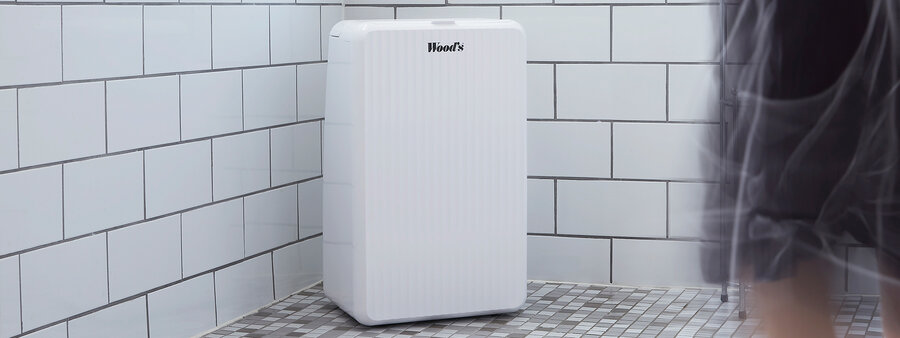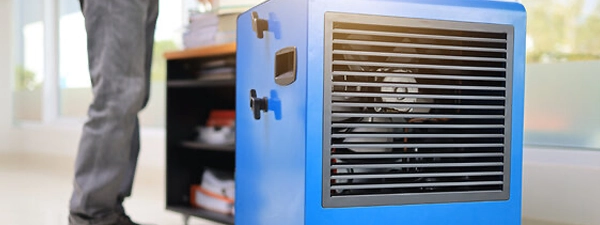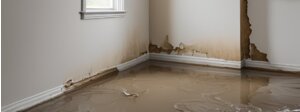Which Dehumidifier Do I Need?

Finding the perfect dehumidifier is not always an easy task. With things like capacity, energy efficiency, and size to consider, it can be difficult to know what type of dehumidifier to pick.
The UK has a cold, wet climate, meaning many months of the year central heating is switched on. Because warm air holds more moisture, central heating increases the chance of damp and black mould. Mould is not just damaging to your belongings but also your health. Maintaining the right range of relative humidity in your home can help combat these problems.
An ideal range of relative humidity is generally considered to be around 40-60%. Purchasing a high-quality dehumidifier can you maintain humidity levels in this range, whether it’s in your home, business, garage, or boat. You can use a hygrometer to accurately test humidity levels. If your levels are above 60% chances are you need a dehumidifier.
Which Dehumidifier Do I Need?
Dehumidifier Type
Refrigerant dehumidifier (compressor dehumidifiers) - Good refrigerant dehumidifiers are generally very energy-efficient and can extract water very quickly. If you just need your dehumidifier for heated rooms, a refrigerant is a great option. Refrigerant dehumidifiers are best suited to warm conditions and don’t function effectively in colder temperatures.
Desiccant Dehumidifier - Desiccant dehumidifiers are great if you need a small dehumidifier or require a dehumidifier for cooler environments such as garages or conservatories. They are quieter and more lightweight, but less energy efficient, so many people opt for a refrigerant for warmer environments.
Dehumidifier Capacity
Although the term ‘capacity’ might sound like the size of a dehumidifier’s water tank, it actually refers to the amount of water it can extract over 24 hours. The water tank collects the moisture extracted from the air and is usually smaller than its listed daily capacity.
However, if you choose the right size for your needs, you won’t need to empty the dehumidifier tank as often. For a lot of people, especially those how may not be around to empty it as regularly, the larger the tank, the better. Many dehumidifiers have continuous drainage hoses that can be attached or purchased as an accessory, meaning you can use the dehumidifier continuously without the tank getting full. For these reasons, it’s important to bear in mind how often you’ll be around to empty the tank and also it's capacity. Capacity is also a simple way to compare the extraction capabilities of two different dehumidifiers.
Weight and Portability
Dehumidifiers often need to be moved around to where they are needed most. If you’ve purchased a heavier dehumidifier (more than 13kg), portability can be a problem. If you have purchased a heavier dehumidifier, you may want to consider whether it has wheels and a handle. If you only need something small, there's a great range of portable dehumidifiers available.
Some other functions you may want to consider when deciding on a dehumidifier:
Off Timer - Good for saving energy. Lets you set the machine to turn off after a set amount of time.
Auto-defrost - A dehumidifier’s coils can start to freeze if the temperature is too low. This mode helps the machine unfreeze.
Humidistat - This function can monitor the humidity in the air and switch the dehumidifier on or off according to desired levels. This can also save energy and mean you don’t have to manually manage your dehumidifier.
Auto-reset - The dehumidifier can restart without changing settings should the power supply be lost.
Extra filtration - Some dehumidifiers come with additional filtration to purify the air.
Energy efficiency - Refrigerant models are typically more energy efficient in warm environments, but less so in cooler temperatures. Desiccant models use more energy but can often work quickly to remove water at cool temperatures. Some dehumidifiers also include settings to manage energy consumption at the expense of extraction speed.
We stock only the most trusted brand of dehumidifier available to the UK market. Need help deciding which one is right for you? Contact one of our knowledgeable team members today on 0800 808 9126.








